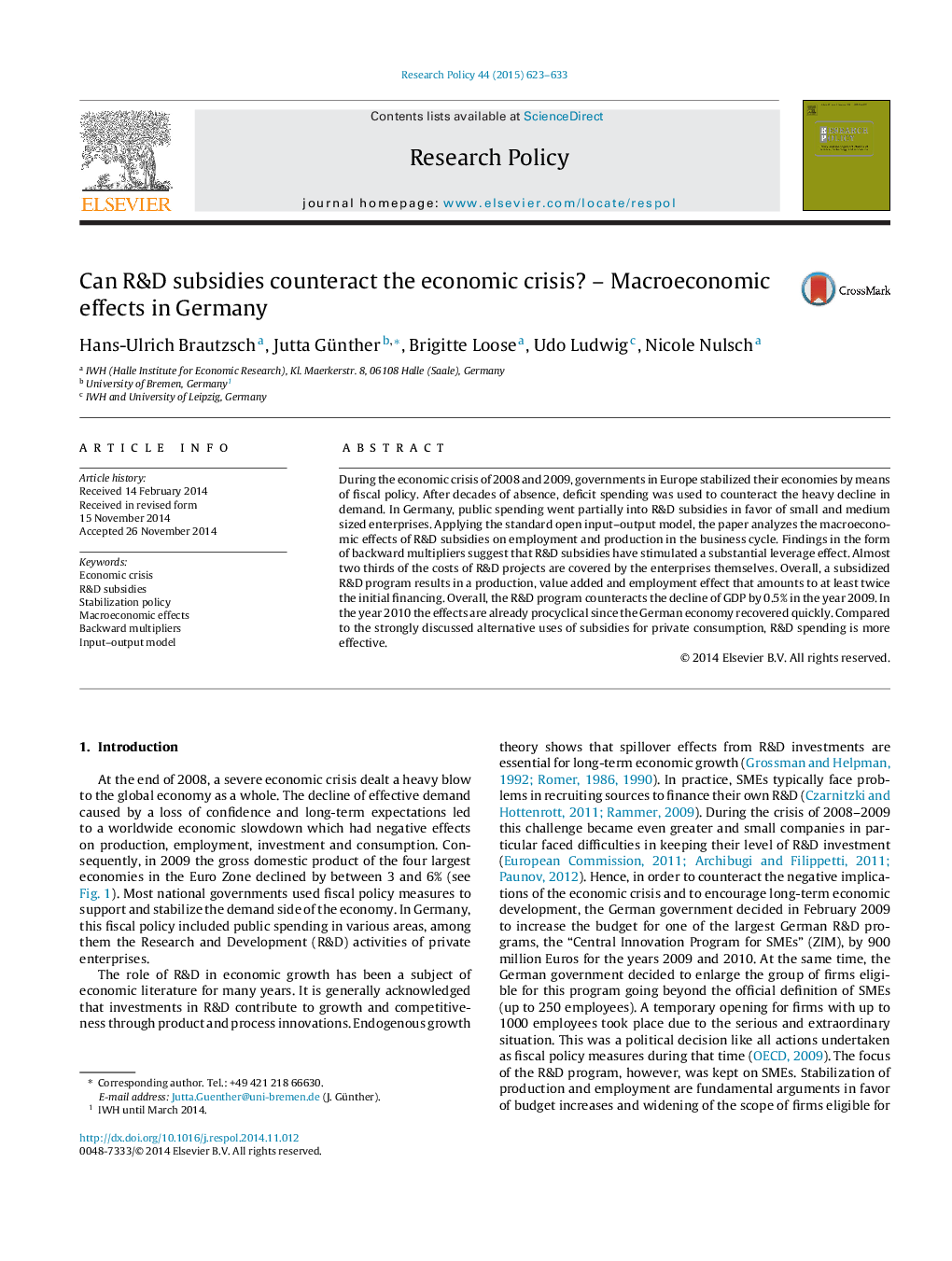| کد مقاله | کد نشریه | سال انتشار | مقاله انگلیسی | نسخه تمام متن |
|---|---|---|---|---|
| 10483130 | 934371 | 2015 | 11 صفحه PDF | دانلود رایگان |
عنوان انگلیسی مقاله ISI
Can R&D subsidies counteract the economic crisis? - Macroeconomic effects in Germany
دانلود مقاله + سفارش ترجمه
دانلود مقاله ISI انگلیسی
رایگان برای ایرانیان
کلمات کلیدی
موضوعات مرتبط
علوم انسانی و اجتماعی
مدیریت، کسب و کار و حسابداری
کسب و کار و مدیریت بین المللی
پیش نمایش صفحه اول مقاله

چکیده انگلیسی
During the economic crisis of 2008 and 2009, governments in Europe stabilized their economies by means of fiscal policy. After decades of absence, deficit spending was used to counteract the heavy decline in demand. In Germany, public spending went partially into R&D subsidies in favor of small and medium sized enterprises. Applying the standard open input-output model, the paper analyzes the macroeconomic effects of R&D subsidies on employment and production in the business cycle. Findings in the form of backward multipliers suggest that R&D subsidies have stimulated a substantial leverage effect. Almost two thirds of the costs of R&D projects are covered by the enterprises themselves. Overall, a subsidized R&D program results in a production, value added and employment effect that amounts to at least twice the initial financing. Overall, the R&D program counteracts the decline of GDP by 0.5% in the year 2009. In the year 2010 the effects are already procyclical since the German economy recovered quickly. Compared to the strongly discussed alternative uses of subsidies for private consumption, R&D spending is more effective.
ناشر
Database: Elsevier - ScienceDirect (ساینس دایرکت)
Journal: Research Policy - Volume 44, Issue 3, April 2015, Pages 623-633
Journal: Research Policy - Volume 44, Issue 3, April 2015, Pages 623-633
نویسندگان
Hans-Ulrich Brautzsch, Jutta Günther, Brigitte Loose, Udo Ludwig, Nicole Nulsch,